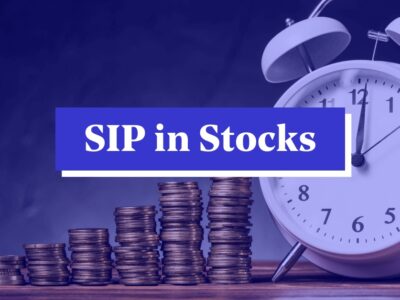
There is another section attached to the equity market known as the Derivatives market. This derivative market includes Futures and Options (F&O) as the popular derivative contract. You can easily open the future & options account just in a few steps with your online broker. Before diving into the future and options world, you must understand all about it. You do not require dematerialisation of shares to execute future and options orders.
What Are Futures
Future and options are two different things. Futures are influencing products and can work in both ways. You must have heard from any salesperson that you have only bought a 20 percent limit on futures, so your profit will be intensified by 5 times. This may sometimes be confusing, so you need to understand how it works. The future contract needs buying and selling of shares on the specified future date.
Once you buy a stock of one lakh rupees in the future by paying a monetary limit of Rs. 20,000, and if the rate of stock increases by 10 percent, your profit will become Rs. 10,000 on your given limit, which now stands at 50 percent, as the leverage is 5 times. And it works the same with the losses too.
What Are Options
Options are asymmetrical, and when you buy an option, your odds of gaining profits get limited. Most people buy the options because of their limited risk. Where there is low risk, there is less profit, so this is only applicable to options. Small f and o trading want to purchase options due to their low-risk options. It is better to be an option seller than an option buyer. Option sellers earn high profits from the premium paid and bear a high risk. However, the option contract provides the seller and buyer the right or ownership, but it does not give obligations to buy or sell.
Types Of Future And Options
The same rules are assigned for both buyers and sellers in the Futures. Whereas, there are two types of Options: Call Option, and Put Option.
Call Options
Whenever you find yourself in the bullish period of a stock or index and feel that the price will rise in the future, then you can purchase a call option or even sell the stock. A call option stops the stock to lessen the maximum loss that the investment may cause. It also allows you to buy the stock or index at the agreed rates on specific dates.
Put Options
If you find yourself in the bearish market and expect that the rates of stocks will fall in the future, you may select the puts option. It allows you to sell the stock or index at the specified price on a specific date. This option becomes less beneficial with the increase in time.
Who should Trade In Futures And Options
Generally, people trade in the stock market through mutual funds, stocks, bonds, etc. But who trades in Futures and Options? High Net individuals, Hedge funds, institutional investors, arbitrageurs, and retail investors take the high-risk trading tool, i.e., futures and options.
● Hedgers
Hedger’s main aim is to protect its stocks against future price volatility. Future and options trading gives price stability to the investors in many cases. They are mostly seen in the commodity market, as the price in such markets fluctuates more frequently.
● Speculators
Speculators bet against long odds by studying the market events and often tend to buy at a low price and hold it till the higher returns in the long term.
Key Takeaway
- Don’t get trapped in the leverage game.
- Stay within your given risk limits. Think about whether you can bear the risk or not when agreeing to a certain price.
- Set the stop loss feature and make profits. If you are a seasoned trader, stop loss is something you have not used. So while trading with F&O, use stop loss to maximize your profit.
- Be aware of the margin and market volatility.
Now, these were the certain things that you should remember about the F&O trade before investing in it. As derivative trading does not need a Demat account, you must know the investment cost. However, F&O trading is not rocket science, so understand it before diving into it.






